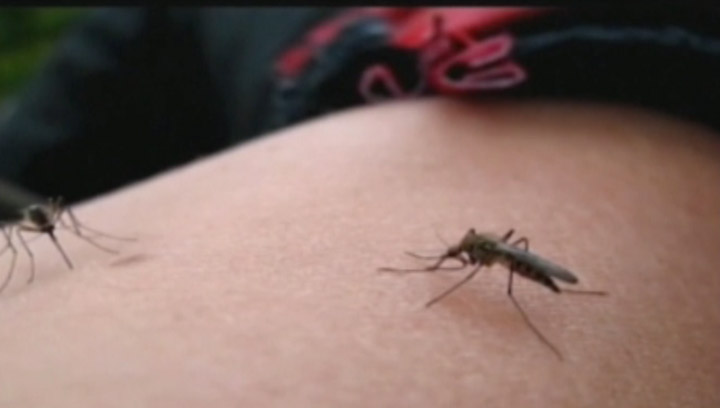REGINA – Health officials in Saskatchewan are reminding residents to take precautions against mosquitoes, as the weather warms up and the risk of the West Nile virus increases.

The virus is transmitted through the bite of an infected Culex tarsalis mosquito, and the risk usually peaks between mid-July and September.
“The number of infected Culex tarsalis mosquitoes may rise quickly if we get prolonged hot, dry weather in July and August,” Provincial West Nile Virus Coordinator Phil Curry said.
READ MORE: Mosquito that can carry West Nile virus found in Saskatoon
“If you plan to be outside when mosquitoes are active, take precautions to protect yourself from bites.”
Most people infected with the West Nile virus experience no symptoms or have a very mild illness.
A small percentage of people can develop a more serious illness from the bite called West Nile neuroinvasive disease which includes encephalitis, an inflammation of the brain.
“Most West Nile Virus infections usually improve on their own, so there is no need to seek medical attention or to get laboratory tests,” Saskatchewan’s Deputy Chief Medical Health Officer Dr. Denise Werker said.
“However, if you develop serious symptoms such as severe headaches, persistent high fever with stiff neck, confusion, seizures, or paralysis, see a health care provider immediately.”
Taking the following preventive measures can minimize exposure to mosquito bites:
- Use appropriate insect repellent when outdoors. Products with DEET are the most effective.
- Cover up. Wear light-coloured, loose fitting, long-sleeved tops and long pants when outdoors.
- Reduce the amount of time spent outdoors between dusk and dawn when Culex tarsalis mosquitoes are most active.
People are also encouraged to reduce mosquito habitats around the house and yard:
- Clear yards of items that can collect water.
- Regularly clean and empty bird baths and eavestroughs.
- Ensure rain barrels are covered with mosquito screen or are tightly sealed around the downspout.
- Keep bushes, shrubs and lawns clear of overgrowth and debris.
- Make sure door and window screens fit tightly and are free of holes.


Comments